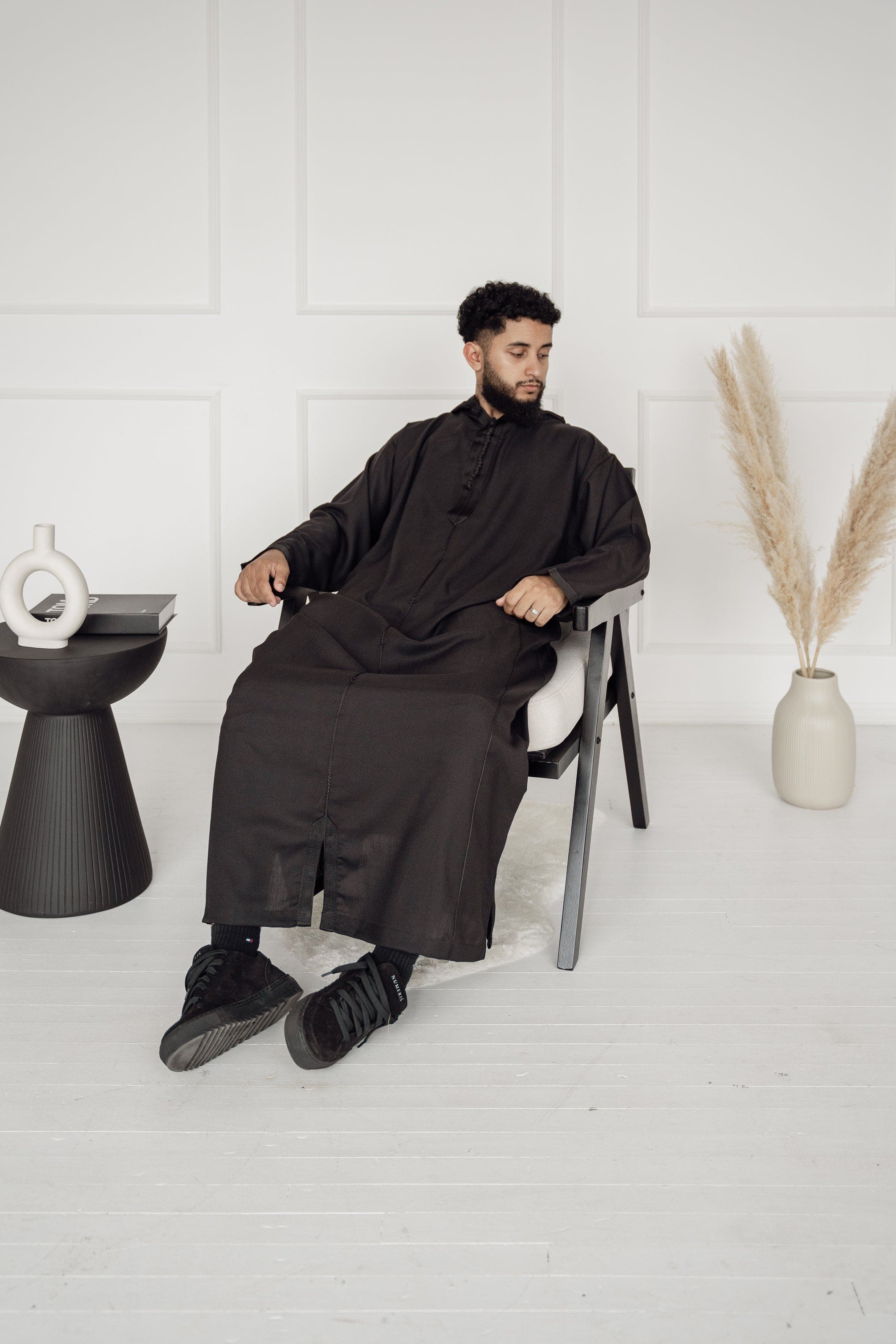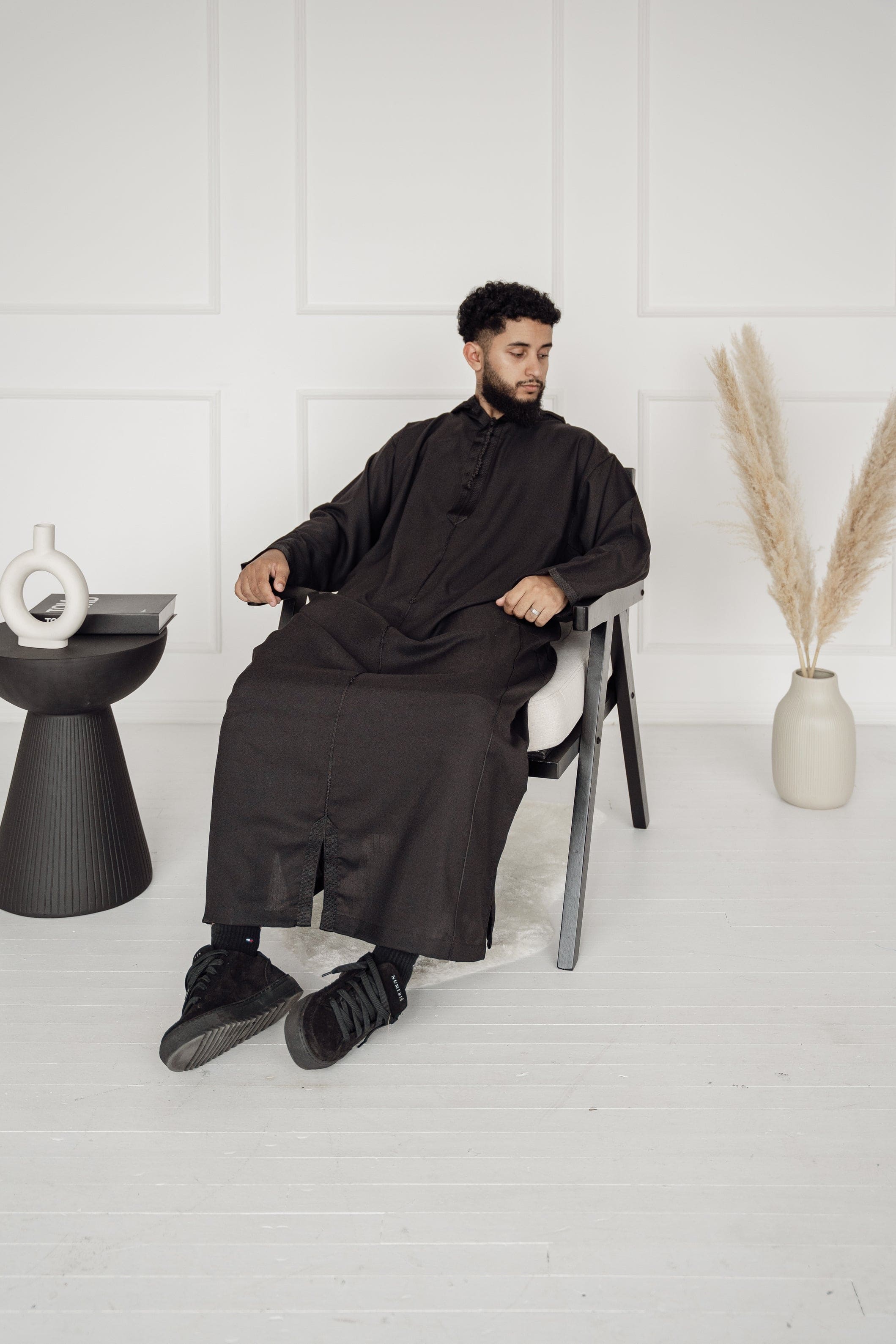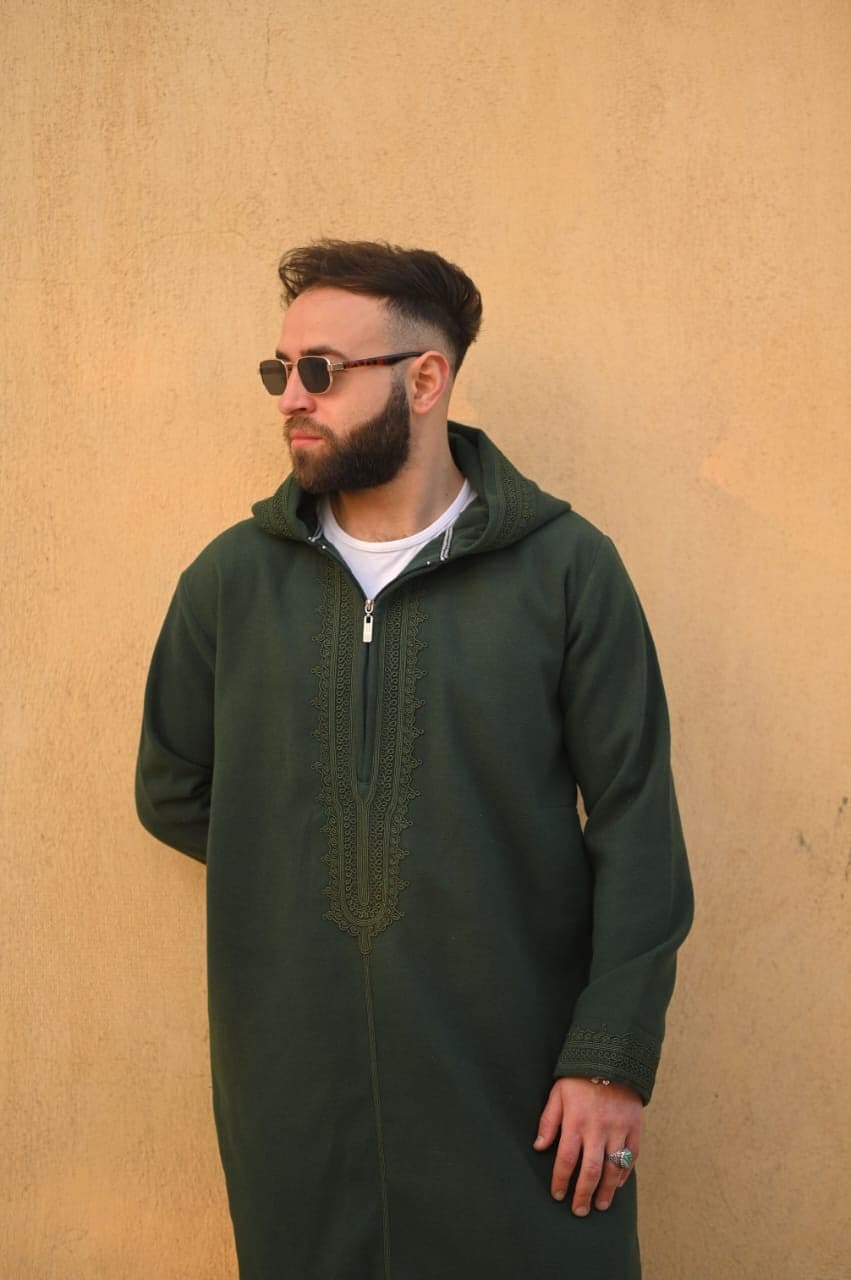Thawbs, the traditional dress of several Middle Eastern and North African nations, have a rich cultural legacy and importance. Among the several types and shades available, black thobes vs white thobes stand out as distinct options, each with its meaning and history. The good news is that such attire is not limited to their native regions. If you’re living in the United Kingdom, thobes UK must be one of the formal attire and a necessity to your wardrobe.
The Cultural Importance of Black Thawbs
Black thawbs have long been associated with numerous civilizations. Black has always been linked with modesty, simplicity, and elegance in many countries. Black is frequently associated with formality, seriousness, and a feeling of tradition in the Thobes setting.
Occasions and Symbolism
Black tobes are frequently seen at formal gatherings, religious ceremonies, and noteworthy occasions. They radiate regard and respect and are frequently worn during religious meetings, Friday prayers, or major cultural festivities. Black represents humility, austerity, and a strong sense of tradition and loyalty to traditional values.
Design and Material
Black tobe fabric and pattern frequently vary, reflecting regional variation and personal preferences. Traditional fabrics like cotton or wool provide comfort and breathability in various temperatures. Designs may include delicate stitching or elaborate patterns highlighting craftsmanship and attention to detail.
White Thawbs: Purity and Simplicity
White tobes have an importance that is firmly rooted in cultural symbols.
The Symbolism of White Thobes
Throughout history, white has been associated with purity, cleanliness, and simplicity. White represents purity, humility, and tranquillity in the setting of thawbs. It represents a new beginning and a pure heart.
Occasions & Cultural Applications
Because of their capacity to reflect sunlight and keep the body cool, white thobes are frequently selected for everyday wear, informal parties, and warmer locations. They are extremely popular during religious occasions and large family gatherings. You’ll witness a unique gracefulness, modesty, and purity in your personality whenever you wear white-coloured tobes.
Black Thobes vs White Thobes
See how these two shades differ and how you should choose concerning the situation you’ll be in.
Variations in Material and Design
Black thobes vs white thobes are available in various materials and styles. Cotton or linen, which are light and breathable, are chosen for comfort in warm weather. The design can range from minimalism to elaborate patterns, highlighting the diversity and artistry of many ethnic traditions.
Personal Taste and Cultural Context
The desire for black thobes vs white thobes is sometimes affected by cultural norms and events. Some people like black tobes for their formality and reverence during important events. On the other hand, many prefer white robes for their simplicity and comfort in daily routine activities.
The Bottom Line
Black thobes vs white thobes have significant cultural importance, representing ideals such as humility, tradition, and individual expression. Deciding between these two thawbs of New Arabia takes you beyond conventional trends, striking a chord with cultural tradition, contemporary style, and personal tastes. Understanding the meaning and background underlying these selections broadens your appreciation for our attires as more than just clothes but representations of ethnic identity and tradition.



